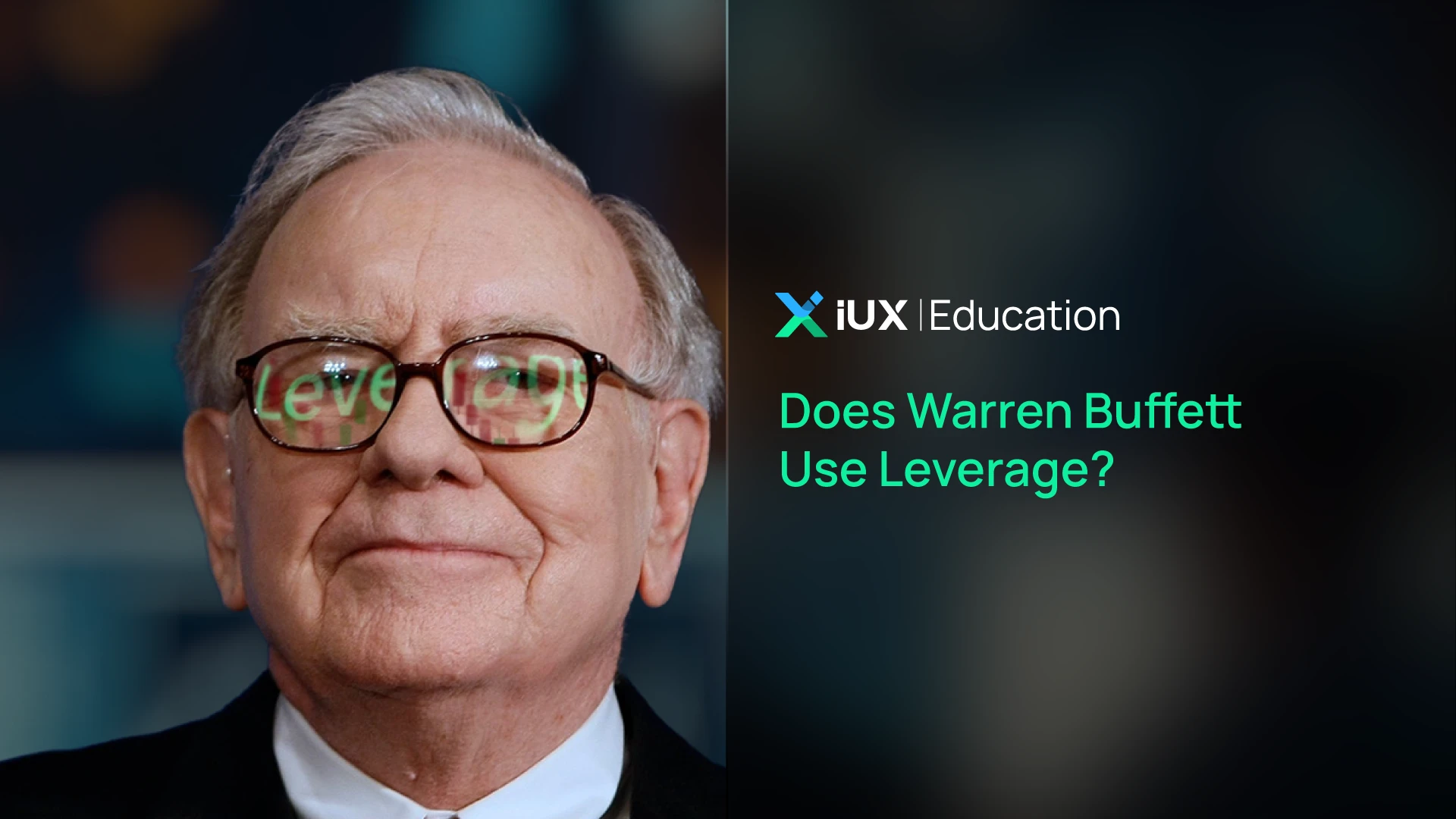CFDs are complex instruments and come with a high risk of losing money rapidly due to leverage. 76% of retail investor accounts lose money when trading CFDs with this provider. You should consider whether you understand how CFDs work and whether you can afford to take the high risk of losing your money.
CFDs are complex instruments and come with a high risk of losing money rapidly due to leverage. 76% of retail investor accounts lose money when trading CFDs with this provider. You should consider whether you understand how CFDs work and whether you can afford to take the high risk of losing your money.

Does Warren Buffett Use Leverage?
Does Warren Buffett Use Leverage?
Warren Buffett, often hailed as one of the greatest investors, is known for his disciplined, long-term investing style. While Buffett is typically seen as conservative, he uses leverage—but in a cautious and strategic way. Unlike aggressive traders, Buffett’s leverage usage focuses on minimizing risk while amplifying returns over time. Here’s how Warren Buffett uses leverage to build wealth.

Using Insurance Float
One of Buffett’s primary leverage tools is the float from Berkshire Hathaway’s insurance businesses, such as GEICO and National Indemnity. Float refers to the premiums that insurance companies collect but have not yet paid out in claims. Essentially, it's money that Berkshire controls temporarily and can invest in assets.
Buffett turns this float into a powerful source of investment capital. Since float acts as borrowed money without immediate repayment or interest costs, it serves as low-risk leverage. By investing the float in stocks and bonds, Buffett essentially uses other people's money to grow Berkshire’s wealth. As of 2022, Berkshire Hathaway had around $147 billion in float—providing substantial capital for investing without tapping into Berkshire’s own reserves.
Leverage in Capital-Intensive Businesses
Berkshire Hathaway owns several capital-heavy businesses, like BNSF Railway and Berkshire Hathaway Energy, which require significant funds for expansion and maintenance. Rather than using all equity, Buffett strategically uses long-term debt to finance these businesses. However, he ensures that the debt is manageable, relying on the company's cash flow to cover interest payments even during downturns.
By borrowing at low rates, Buffett uses leverage to boost growth while minimizing risk. This conservative use of leverage allows these businesses to grow without overburdening the company’s finances.
Leverage in Acquisitions
Buffett is known for large acquisitions, such as his $37 billion purchase of Precision Castparts in 2015. Though Berkshire Hathaway can make all-cash deals, Buffett often chooses to take on debt when interest rates are low. This allows him to keep more cash available for other investments while benefiting from the acquired company’s returns.
For example, in acquisitions like Burlington Northern Santa Fe, Buffett used debt strategically, ensuring the return on investment exceeded the borrowing costs. This type of leverage, combined with thorough due diligence, maximizes returns while keeping risks low.
Leveraging Reputation and Relationships
Buffett also leverages his reputation and relationships to secure favorable investment terms. For instance, during the 2008 financial crisis, Buffett invested in Goldman Sachs and General Electric, securing preferred stock deals with high dividends and warrants to buy shares at discounted prices. These deals gave him superior returns without taking on traditional leverage.
His status as a respected investor allows him to negotiate terms that others might not get. This type of "leverage" is based on Buffett's credibility and network rather than borrowing.
Buffett’s Cautious Use of Leverage
While Buffett uses leverage in various forms, he is highly cautious about taking on too much debt. He has always warned about the dangers of excessive leverage, often citing it as a reason why smart investors make foolish mistakes. He prefers to use leverage only when there’s a high probability of success and when he can comfortably manage the debt in adverse conditions.
Buffett’s aversion to reckless leverage is evident in his public comments and investment philosophy. He believes in using leverage only when necessary and avoiding situations where debt could jeopardize the company’s financial health. This mindset has helped Berkshire Hathaway remain financially stable through market downturns, ensuring long-term success.
Leverage can be a powerful tool, but Buffett has shown that using it wisely is the key to long-term success. Choosing the right timing and managing debt effectively are essential for building a stable investment portfolio. IUX empowers you to trade swiftly in any situation with a platform equipped with efficient leverage management tools and analytical features to help you make smart decisions. Start trading with IUX today and experience a smoother trading journey than ever before!
Conclusion
Warren Buffett’s use of leverage is strategic and conservative, focusing on amplifying returns without exposing Berkshire Hathaway to undue risk. Through tools like insurance float, long-term debt for capital investments, and carefully structured acquisitions, Buffett harnesses leverage to generate sustainable growth.
Unlike many investors who use leverage for high-risk, high-reward plays, Buffett’s approach emphasizes risk management and long-term value creation. His success illustrates that when used wisely, leverage can be a valuable tool for building wealth steadily and securely.


